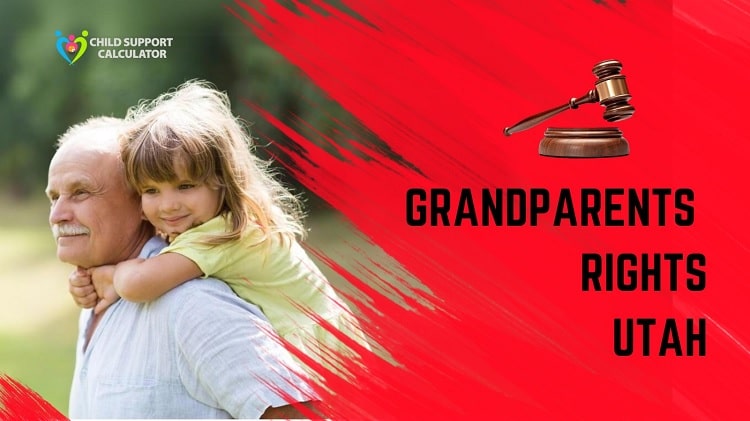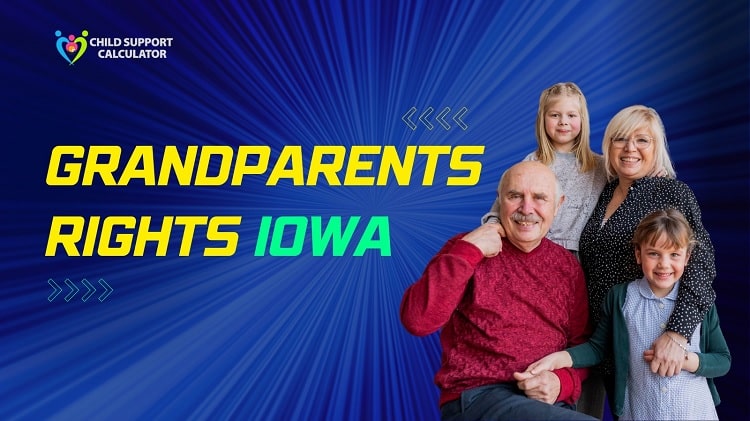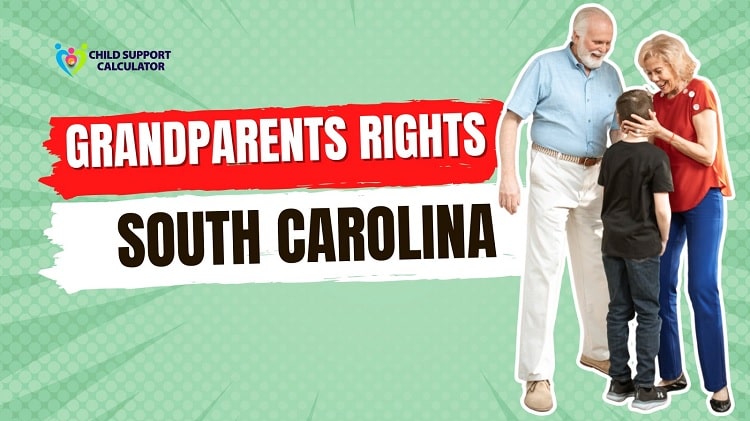Grandparents Rights In Utah (Updated) 2024
Grandparent visits are anticipated by both parents and children in many families. Some grandparents provide emotional support or child care aid to fatigued parents while lavishing attention and love on their grandchildren.

When parents split or separate, though, a parent may decide to stop paying visits to grandma or grandpa. There’s still hope if you’ve been an involved grandparent who’s been suddenly barred from seeing your grandchild.
Grandparents who want visitation with their grandchildren have legal options. To evaluate whether grandparent visitation is appropriate, a judge will examine the grandchild’s best interests, among other things. Grandparents rights in Utah are discussed in this article.
Overview of Grandparent Visitation Laws Under Troxel
Grandparents rights in Utah are not mentioned in the Constitution, and there is no federal statute that governs them. Instead, each state has adopted its own grandparent visitation legislation. Grandparent visitation regulations differ by state; however, the United States Supreme Court has established certain basic guidelines for grandparent visitation.
Troxel v. Granville was decided by the Supreme Court in 2000. The case involved a challenge to Washington’s grandparent visitation law’s constitutionality. In any issue concerning grandparent rights, a judge must consider the grandchild’s best interests, according to the Troxel ruling.
The court must assume that a parent’s refusal to allow grandmother visitation is reasonable. Finally, the court must consider the reasons for a parent’s refusal to allow grandparent-grandchild visits. While the Troxel judgment reinforced parents’ rights, it also acknowledged that grandparent visitation might be appropriate in some circumstances.
Grandparent Visitation Rights in Utah
In Utah, a parent’s decision to allow or prohibit grandparent visits is presumed to be in the grandchild’s best interests. A grandparent seeking visitation must overcome this presumption by demonstrating that the grandchild benefits from the visitation. To determine whether grandparent visitation is required, a judge will consider the following factors:
- The grandmother is physically and mentally capable of exercising visitation with the youngster.
- The grandchild’s parent has imposed unreasonable restrictions on or banned grandparent-grandchild contact.
- The parent of the grandchild is unsuitable or incapable.
- The grandparent has cared for the grandchild or has had a significant relationship with the grandchild, and the child will be harmed if that relationship is lost.
- Because of divorce or legal separation, the child’s parent has died or has become a noncustodial parent.
- The parent of the child has been missing for a long time.
- Grandparent visitation is in the best interests of the grandchild.
Grandparent visitation was limited in one Utah instance because it interfered with the mother’s parental rights. Following her parents’ divorce, the grandchild lived with her father and grandparents.
After the grandchild’s father died, the grandparents petitioned the court for visitation. The lower court initially granted Grandparent visitation in a significant amount of time – 36 hours per month.
On the other hand, the appeals court found that the grandparents had not demonstrated that the grandson would be harmed if visitation was prohibited. Grandparent visitation was reduced to a few hours each month after the case was reversed.
This decision shows that a grandparent’s visitation rights cannot be used to circumvent a parent’s fundamental right to raise their own children. When weighing a parent’s rights against grandparent visitation privileges, the parent’s rights will come out on top.
Grandparent Custody Rights in Utah
Parents have the right to raise and care for their children under the law. Unless the child’s parent is unfit or has voluntarily relinquished parental rights, a grandparent cannot intervene and seek custody of a grandchild. Utah law allows a third party, such as a grandmother, to seek custody when the following conditions are met:
- The grandmother has taken on the role and responsibilities of a parent on purpose.
- Grandparents and grandchildren share a strong emotional tie and a relationship similar to that of parents and children.
- The grandmother has made a significant emotional or financial contribution to the child’s well-being.
- The grandparent is not financially compensated for taking on the role of parent.
- The continuation of the grandparent-grandchild relationship is in the grandchild’s best interests.
- The loss of the grandparent-grandchild bond would be detrimental to the grandchild.
- The grandparent of the grandchild is either absent or has harmed or neglected the youngster.
For example, in one case in Utah, a court refused custody of maternal grandparents. The grandchild’s mother had died, and the father had only recently joined the family. The grandparents were unable to prove that the father had abandoned, harmed, or neglected the kid. Thus the court rejected custody. A grandparent’s momentary absence is insufficient to gain custody of a grandchild.
The burden of proof for a grandparent is to show that the grandchild’s parent is incapable of meeting fundamental parenting responsibilities. In Utah law, parents are presumed to behave in their children’s best interests. Thus, a grandmother seeking custody must prove otherwise. Before a grandmother can petition for custody of a grandchild, the parent must be unfit or absent from the picture.
Can a biological grandparent obtain visitation with an adopted child?
Adoption terminates a biological parents and grandparents’ rights to a kid. In the same way, if a parent’s parental rights are terminated, a grandparent (the parent’s parent) loses visitation rights with the grandchild. There are some exceptions in the event of stepparent adoptions or adoptions by blood relatives.
In one example in Utah, a judge turned down a paternal grandparent’s request for visitation. Before the grandchild was born, the grandparent’s son (and the grandchild’s father) died. The child’s mother abandoned her parental rights and placed the infant for adoption through an agency shortly after the child was born.
The paternal grandparents attempted to stop the adoption, but the court decided that they lacked standing. The legal rights of the grandparents were violated.
Grandparents rights in Utah are always subordinate to the rights of parents. A grandmother may be entitled to visitation with a grandchild in certain circumstances, as long as the visits do not interfere with the parent’s rights and are in the grandchild’s best interests.
Faqs
The answer will be determined by your unique situation. Grandparents’ rights in the state are subject to numerous restrictions and limits. If you want to learn more about your grandchild’s visiting rights, let’s look at what might be preventing you from doing so.
Where a divorce or other case involving custody and visitation issues is pending, a grandparent may submit a petition for visitation rights in the juvenile court or district court.
Grandparents must submit a petition to the juvenile court in order to get visitation. However, it is not as simple as filing a petition and waiting for a court to rule that you are entitled to visitation because you plainly love your grandson.
In summary, grandparents in any of the 50 states do not have a legal right to see their grandchildren. The law is designed to safeguard parental rights above all else, and granting grandparents visitation privileges automatically is considered as a breach of a parent’s ability to choose what is best for their child.
According to Utah child custody rules, an unfit parent fails to offer enough care, support, and guidance to his or her child. A parent is also unfit if they neglect or abuse their children or suffer from a substance abuse problem.







